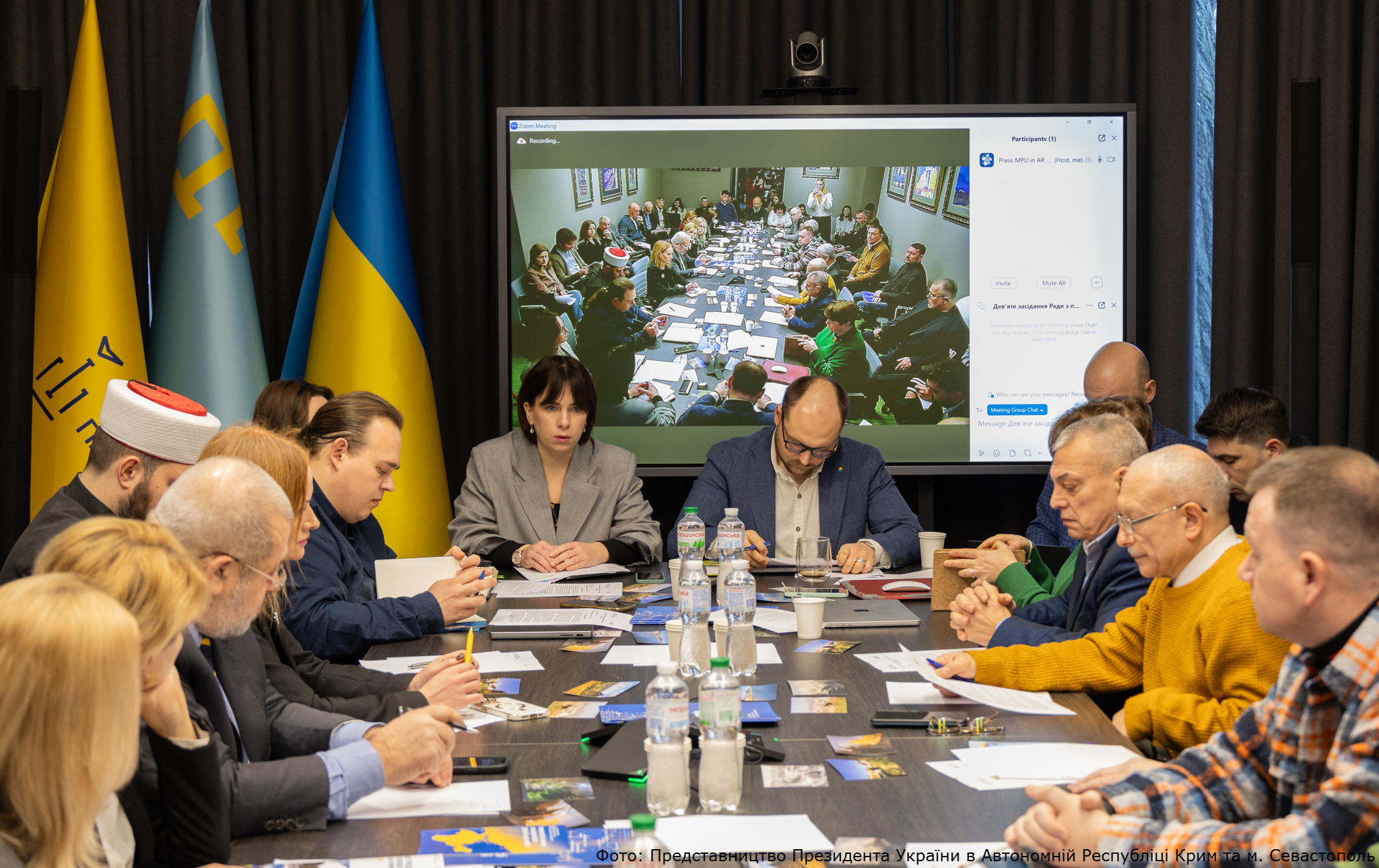The Council for Cognitive Deoccupation of Crimea has outlined its key priorities for 2025.
At the first meeting in 2025, the Council on Cognitive Deoccupation of Crimea approved its work directions, agreed on refining joint communication messages regarding Crimea, and formed preliminary working groups for future activities.
This was reported by the Office of the President of Ukraine in the Autonomous Republic of Crimea and the city of Sevastopol.

Acting representative of the president in the ARC Olga Kurishko expressed gratitude to the council members for their productive work in 2024 and emphasized the importance of ongoing activities.
She highlighted key achievements, including the development of the Strategy for Cognitive Deoccupation of Crimea, the document “Priority Steps of the Ukrainian State After the Deoccupation of Crimea,” and pointed out the challenges faced during the approval of these documents at the state level.
During the meeting, 48 participants discussed the prospects for continuing workshops and the direction of interfaith work. They also paid special attention to the memorialization of the military from Crimea who lost their lives defending Ukraine. The council members stressed the need to develop mechanisms for honoring the memory of fallen defenders, especially those who cannot be commemorated in their Crimean communities due to temporary occupation.
One of the key topics of discussion was the launch of a youth track for the council's work. This will include a series of discussions titled “Crimea and Youth: Vision of Resilience, Values, Solidarity,” which will commence this month, along with the start of Crimean studios at the Kyiv-Mohyla Academy.
The meeting concluded with remarks from Yevgeny Bondarenko, who outlined the council's key work directions for 2025:
“We are finalizing communication messages, jointly with the Ukrainian Institute of National Memory, we are addressing the issue of dismantling memorial signs installed by the Russian Federation in Crimea. We continue interfaith dialogues and are preparing an information campaign titled ‘11 Years of Resistance’. The youth track has been launched, which will be complemented by Crimean studios at the Kyiv-Mohyla Academy. We are continuing our work on workshops related to national memory, simulation exercises, and preparing for the Crimean Media Forum.”
As is known, a Council on Cognitive Deoccupation of Crimea has been established based on the office, which is developing practical steps and events within the framework of the Strategy for Cognitive Deoccupation of Crimea. The council includes representatives from state bodies, deputies, scholars, human rights defenders, and communication specialists.
Earlier, Yevgeny Bondarenko noted the importance of adopting the Strategy for Cognitive Deoccupation of Crimea at the state level.